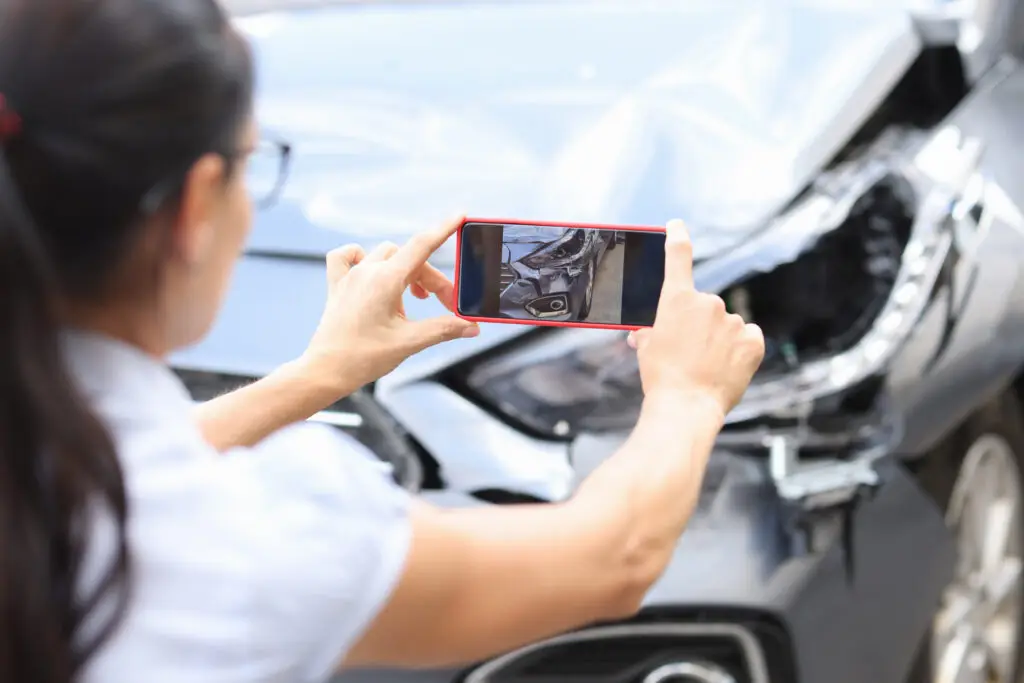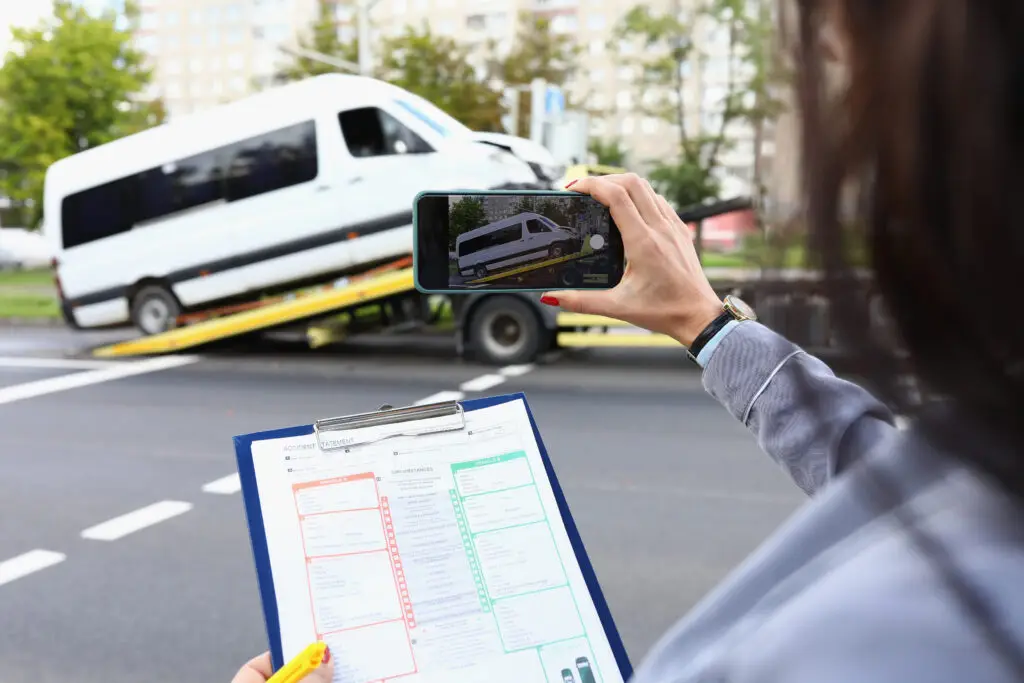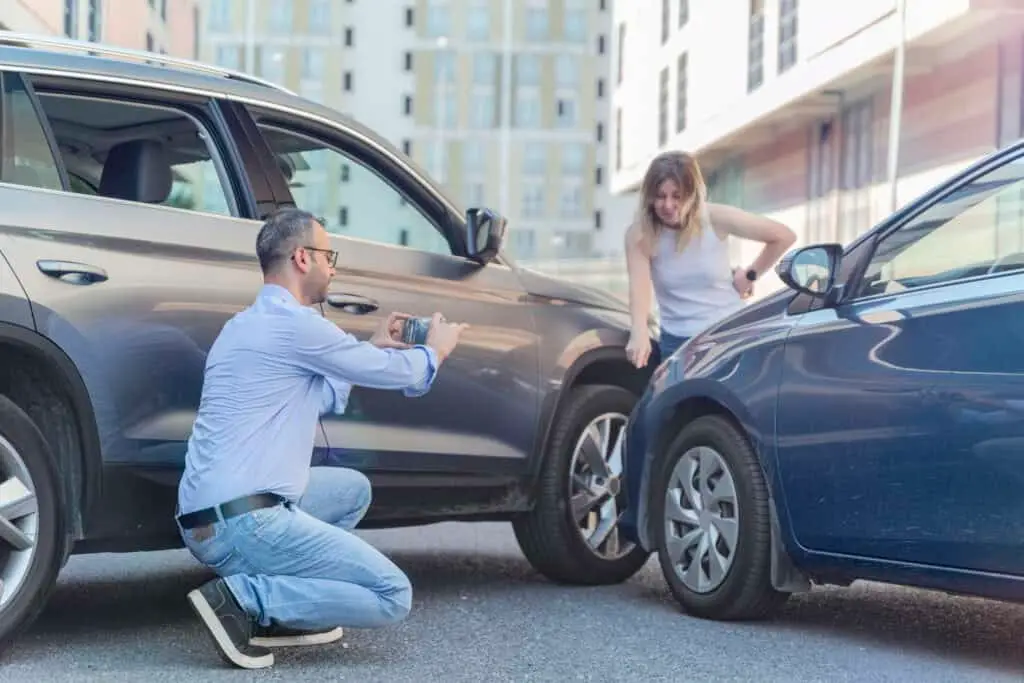Should I Talk To the Other Driver’s Insurance Company After a Car Accident?
Dealing with the aftermath of a car accident can be both frustrating and overwhelming, especially when the calls and questions from insurance companies start flooding in. These companies often act quickly, seeking statements or information that could impact your claim. Navigating this process requires careful attention to detail and a clear understanding of your rights, as one wrong move could potentially compromise the outcome of your case.
At Doehrman Buba Ring, we specialize in taking the burden off your shoulders by dealing directly with insurance companies on your behalf. Our experienced team knows the tactics insurers use to minimize or deny claims, and we are committed to fighting for the full compensation you deserve. From handling complex negotiations to ensuring all necessary documentation is in place, we take a strategic and results-driven approach to protect your rights.
When you work with us, you can focus on recovering from the accident while we handle the stress and complexity of the legal and financial aspects. Trust Doehrman Buba Ring to deliver the results you need efficiently and effectively. Contact our offices to schedule a free consultation.

What Should I Do After a Car Accident In Indiana?
After a car accident in Indiana, it is crucial to take deliberate and informed steps to protect your rights and ensure a smooth resolution of the situation. Following the correct process can help safeguard your interests and streamline any subsequent claims or legal matters. Here’s what you need to do:
- Ensure Safety First: Move to a safe location if possible, and check yourself and others for injuries. Call 911 immediately if medical attention is needed.
- Contact Law Enforcement: Indiana law requires you to report accidents that result in injury, death, or significant property damage. Always file a police report.
- Document the Scene: Take photos of the accident scene, vehicle damage, license plates, and any road or weather conditions that could have contributed to the accident.
- Exchange Information: Collect contact and insurance information from the other driver(s), but avoid discussing fault or making any admissions.
- Gather Witness Details: If there are witnesses, get their contact information, as they could provide critical statements later.
- Notify Your Own Insurance Company: Report the accident to your insurer promptly while sticking to the facts.
- Seek Medical Attention: Even if you feel fine, some injuries may manifest later. A medical evaluation ensures your health is prioritized and documented.
- Consult an Attorney: If the accident leads to injuries, disputes, or significant damage, contacting an experienced attorney will protect your rights and optimize outcomes.
By following these steps with confidence and precision, you will position yourself to handle the aftermath of a car accident effectively and with a focus on achieving results.
Do I Have To Notify My Own Insurance Company If the Car Accident Was Not My Fault?
Yes, even if the car accident was not your fault, it is crucial to notify your own insurance company promptly. Most insurance policies require policyholders to report any accidents, regardless of fault, to ensure compliance with the terms of the policy. Failing to notify your insurer could jeopardize your coverage in case claims arise later.
Additionally, informing your own insurance company allows them to assist in managing issues related to repairs, medical claims, or liaising with the at-fault party’s insurer. Being proactive in this step ensures you maintain transparency and remain in control of the resolution process.
Will My Car Insurance Company Protect Me From the Other Driver’s Insurance Company?
Yes, your car insurance company is there to protect your interests when dealing with the other driver’s insurance company. They act as a shield, ensuring that communication and negotiations are handled professionally and in your favor. Your insurer will step in to evaluate the details of the incident, assess liability, and handle claims on your behalf.
This includes negotiating settlements, addressing disputes, and ensuring that you are not unfairly pressured into accepting less than what you are entitled to. By leveraging their expertise and resources, your insurance company helps you avoid common pitfalls and ensures a results-driven approach to resolving the situation efficiently.
Why Would The Other Driver’s Car Insurance Company Call Me?
The other driver’s insurance company will often contact you to gather information about the accident and assess liability. They may ask for your version of events, details about damages, or even your injuries. Their ultimate goal is to minimize their financial payout, which is why these calls can be strategically worded to elicit specific responses.
It’s important to remember that their interests are not aligned with yours, and anything you say can potentially be used to weaken your claim. Always approach these interactions with caution, and consider consulting a car accident lawyer before engaging in detailed discussions with them. This ensures that your rights and interests are protected from the start.
Am I Legally Required To Talk To the Other Driver’s Insurance Company?
No, you are not legally required to talk to the other driver’s insurance company representative. While they may attempt to contact you in the aftermath of the accident, you are under no obligation to provide a statement or discuss the details of the incident with their representatives. Engaging in such conversations could inadvertently harm your case, as their primary goal is to protect their company’s interests, often at your expense.
Should I Give a Recorded Statement To the Other Driver’s Insurance Company?
No, you should not provide a recorded statement to the other driver’s car insurance company. Insurance adjusters are trained to ask questions in a way that may lead to you unintentionally admitting fault or downplaying your injuries. These statements can be used against you to minimize or deny your claim.
If the other driver’s insurance company calls, direct all communication to your attorney or allow them to handle discussions on your behalf. This ensures that your rights are protected and that any information shared is accurate and in your best interest. Always remember, protecting your claim starts with being cautious about who you speak to and what you share.
What Should I Say If the Other Driver’s Insurance Company Contacts Me?
When the other driver’s insurance company contacts you, it’s critical to handle the situation carefully and strategically. Their goal is to gather the information that might minimize their financial liability, not to protect your interests. Knowing exactly what to say—or not say—can be the difference between a fair settlement and a detrimental outcome.
- Remain Calm and Polite: Even in high-pressure situations, maintain a professional and composed demeanor.
- Provide Only Basic Information: Limit your communication to basic details such as your name, address, and contact information.
- Refer Them to Your Own Insurance Company or Attorney: If pressed for further details or asked to give a recorded statement, confidently decline and inform them that all inquiries should be directed to your attorney or your insurance provider.
By adhering to these practices when speaking with the insurance company’s representative, you can effectively manage the situation while safeguarding your claim.

What Should I Avoid Saying To the Other Driver’s Insurance Adjuster?
When dealing with the other driver’s insurance adjuster, it is critical to exercise caution in your communication. Saying the wrong thing can jeopardize your claim or be used against you during the claims process. Here are some key points to keep in mind:
- Do Not Admit Fault: Avoid statements that could be interpreted as admitting fault, even partially. Stick to the facts and leave fault determination to the experts.
- Avoid Speculating or Making Assumptions: Refrain from offering opinions or speculations about what happened—only share what you directly observed.
- Do Not Discuss Your Injuries in Detail: Insurance adjusters may attempt to minimize your injuries. Instead, defer questions about your medical condition to your healthcare provider.
- Avoid Saying You “Feel Fine” or are “Okay”: These casual comments can be used to downplay the seriousness of your injuries.
- Do Not Accept Any Settlement Offers Without Consultation: Early settlement offers are often inadequate. Always review offers with your attorney or insurance company first.
Maintaining a careful and professional approach in these discussions ensures no unnecessary damage is done to your claim.
Do I Have To Provide the Other Driver’s Insurance Company With My Medical Records?
No, you are not obligated to provide your complete medical records to the other driver’s insurance company. Sharing unrestricted access to your medical history can harm your claim, as the insurance adjuster may attempt to use unrelated past medical conditions against you.
Instead, you should only provide specific records that are directly relevant to the injuries sustained in the accident. Always consult your attorney before releasing any medical information to ensure that your rights and privacy are protected.
Should I Accept a Settlement Offer From the Other Driver’s Insurance Company?
It is critical to approach any settlement offer from the other driver’s insurance company with caution and a clear understanding of your rights. Their primary goal is to minimize payouts, which means the initial offer may not fully account for your medical expenses, lost wages, property damage, or pain and suffering.
Accepting a low settlement prematurely could leave you responsible for future costs that should have been covered. Instead, consult with an experienced attorney who can evaluate the offer and negotiate on your behalf to ensure you receive the fair compensation you deserve. Taking this assertive step can have a significant impact on the outcome of your claim.
Should I Hire a Car Accident Lawyer To Deal With the Other Insurance Company?
Absolutely. Hiring a car accident lawyer to deal with the other driver’s insurance company is one of the most effective ways to protect your rights and maximize your compensation. Insurance companies are often focused on minimizing payouts, and without proper legal representation, you might unknowingly accept an offer far below what you are entitled to.
How Will a Car Accident Lawyer Help Me With the Other Insurance Company?
Navigating the complexities of dealing with the other driver’s insurance company can be overwhelming, especially when you are also recovering from an accident. A skilled car accident lawyer will take the burden off your shoulders and ensure your case is handled with precision and expertise. Here’s how they can assist you:
- Negotiating Fair Compensation: Your lawyer will evaluate your case, calculate the full extent of your damages, and negotiate aggressively with the insurance company to secure the compensation you deserve.
- Handling Communication: Insurance adjusters are trained to minimize payouts. Your lawyer will manage all communications to prevent you from making statements that could harm your claim.
- Gathering Evidence: They will collect and present compelling evidence, such as police reports, witness accounts, and medical records, to strengthen your case against the insurance company.
- Protecting You from Tactics: Insurance companies may use tactics to delay, deny, or devalue claims. A lawyer ensures you are shielded from these strategies and your rights are upheld.
- Representing You in Court, if Necessary: If the insurance company refuses to settle fairly, your lawyer will be prepared to take the case to court and fight for a favorable outcome.
With a car accident lawyer on your side, you can focus on recovery while the legal aspects of your case are expertly managed.
Do I Have To Sue the Other Insurance Company To Receive Fair Compensation?
Not necessarily. Most car accident claims are resolved through settlement negotiations with the insurance company, without the need to file a lawsuit. However, if the other insurance company refuses to offer a fair settlement, pursuing legal action may become necessary to ensure you receive the compensation you deserve.
An experienced attorney can evaluate your case, determine the best course of action, and, if needed, file a lawsuit on your behalf. Their goal is always to achieve the best possible outcome, whether through negotiation with the other insurance company or litigation in court.
What Damages Can I Recover With A Lawsuit That Aren’t Included In An Insurance Claim?
Insurance claims typically cover a range of expenses related to the direct losses caused by the incident. These often include medical bills for injuries sustained, property damage repairs, and lost wages due to the inability to work. Additionally, claims might cover immediate out-of-pocket costs, such as rental car expenses or emergency accommodations.
However, insurance companies often limit coverage to what they consider reasonable and necessary. Understanding these limitations is key to ensuring you pursue fair compensation.
When pursuing a lawsuit, you may be able to recover damages that go beyond what an insurance claim typically covers. For example, a court may award compensation for pain and suffering, which accounts for the emotional and psychological distress caused by your injuries.
Furthermore, if your injuries result in long-term disability or impact your ability to earn income, the lawsuit can include compensation for lost earning capacity and future medical expenses. By pursuing legal action, you ensure that all aspects of your losses are accounted for and that justice is fully served.
How Do I Find the Right Indiana Car Accident Attorney For My Case?
Finding the right Indiana car accident attorney for your case is crucial to achieving the justice and compensation you deserve. Start by researching attorneys with extensive experience in personal injury and car accident cases. Look for a firm with a proven track record of success and positive client testimonials. Ensure they have an in-depth understanding of Indiana’s legal system and can provide clear guidance tailored to your circumstances. It’s also important to choose an attorney who is communicative, compassionate, and committed to fighting for your best outcome.At Doehrman Buba Ring, we pride ourselves on being a trusted name in personal injury law. With decades of experience and an unwavering dedication to our clients, we have successfully handled some of the most complex car accident cases in Indiana. Our team combines expertise, empathy, and relentless advocacy to ensure you receive the compensation and justice you deserve. Don’t face this challenging process alone—schedule a free consultation with Doehrman Buba Ring today and take the first step toward reclaiming your future.


